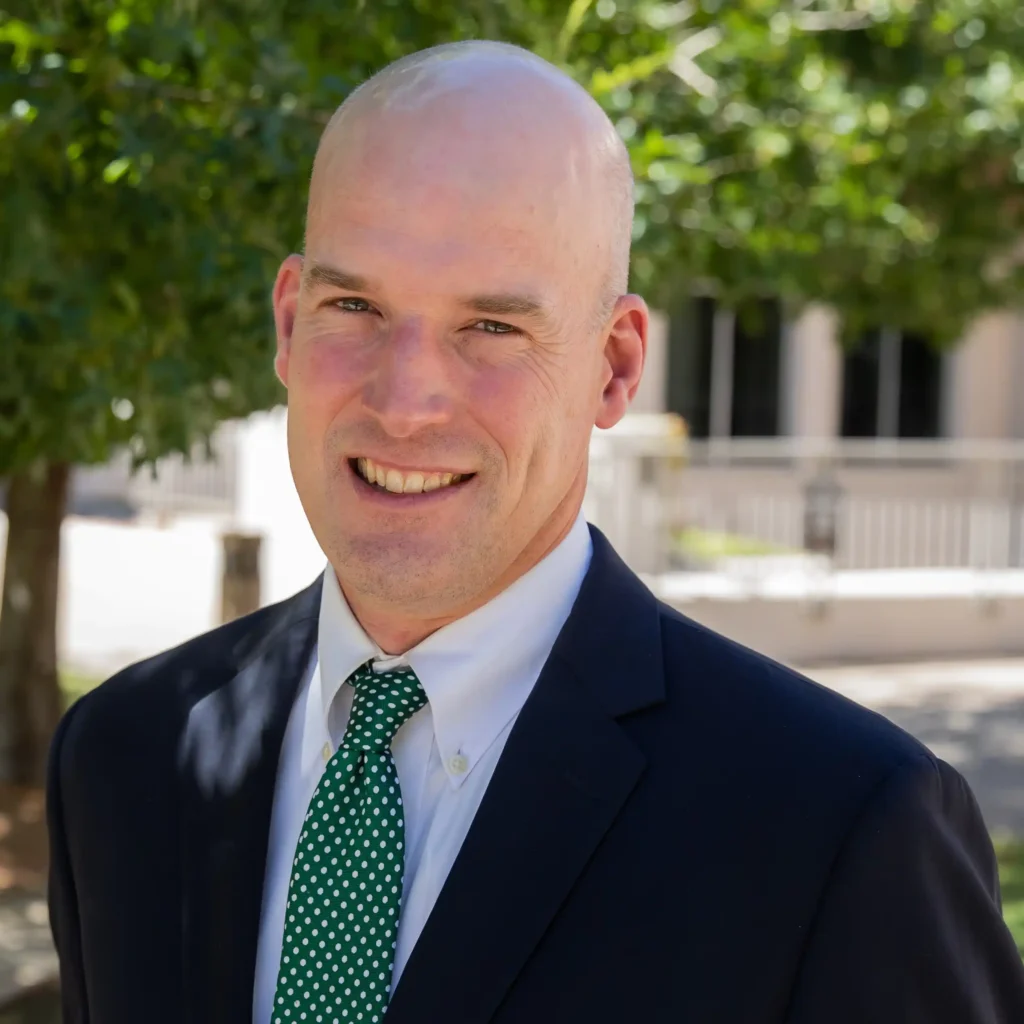Tim Fitzgerald: Exploring the Intersection of Natural Resources and Economics

From the White House to the lecture halls of academia, Dr. Timothy Fitzgerald has lived in every U.S. time zone, letting his academic interests shape his journey. A seasoned economist with expertise in energy markets, he has long been fascinated by natural resources, their uses, and their impact on daily life.
That journey brought Fitzgerald to the Howard H. Baker School of Public Policy and Public Affairs at the University of Tennessee, Knoxville, in August, where he serves as a visiting professor. This role allows him to inspire the next generation of public problem solvers while delving deeper into the intersection of natural resources and economics.
A Career Bridging Economics and Policy
Fitzgerald’s move to Tennessee was partly influenced by his former colleague Marianne Wanamaker, now the Baker School’s dean. The two previously worked together at the White House Council of Economic Advisers, where Wanamaker handled the domestic portfolio while Fitzgerald focused on international economic issues.
He was also drawn by the research being conducted at the Center for Energy, Transportation, and Environmental Policy (CETEP) at the University of Tennessee. Familiar with the work of Dr. Charles Sims, Fitzgerald was excited to join a growing team of researchers, including Dr. Dale Manning and Dr. Andrew Balthrop, who arrived in Knoxville at the same time.
“There is a lot of overlap in my research interests and what is being done at CETEP,” Fitzgerald said. “I look forward to contributing to that work.”
Tennessee’s Unique Energy Landscape
Tennessee’s distinctive energy market was another compelling reason for Fitzgerald’s move. Having transitioned from Texas’ decentralized energy market to Tennessee’s regulated one, he sees significant opportunities for study, particularly given the Tennessee Valley Authority’s unique role in the region’s energy infrastructure. The TVA’s hydro and nuclear power portfolio adds further complexity, making it a fascinating case for economic and policy research.
Upcoming trends, such as climate policy and the surge in electricity demand due to energy-intensive artificial intelligence technologies, have placed electricity markets at the forefront of public policy discussions. As regions explore new strategies like energy trading and dynamic pricing to manage grid demand, Fitzgerald sees this as an ideal environment for policy-driven economic research.
“There is a focus on electricity demand and markets. Overall demand for electricity has increased greatly and will continue to grow,” Fitzgerald noted. “Energy markets operate in the background all the time, and right now, there are a lot of great policy questions surrounding energy.”
Preparing the Next Generation of Energy Policy Leaders
With the ongoing energy transition, Fitzgerald anticipates strong career growth in energy policy and encourages his Master of Public Policy students to consider opportunities in the field as they chart their own paths.